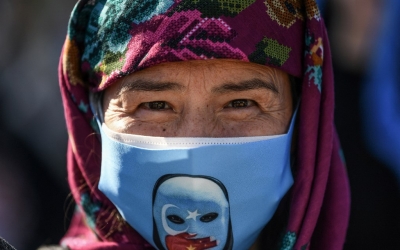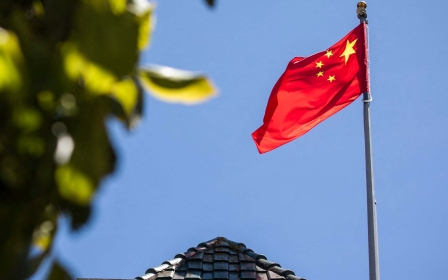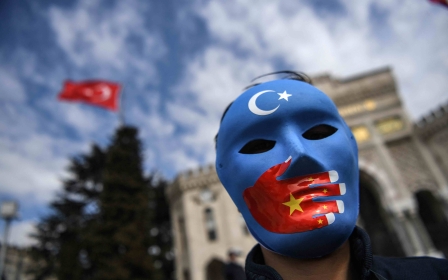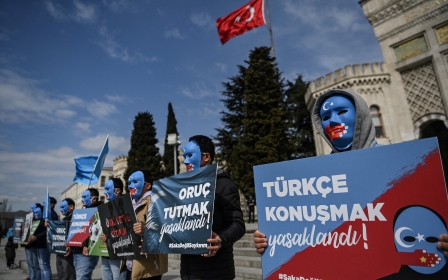China has created 'dystopian hellscape' for Uighurs in Xinjiang, says Amnesty
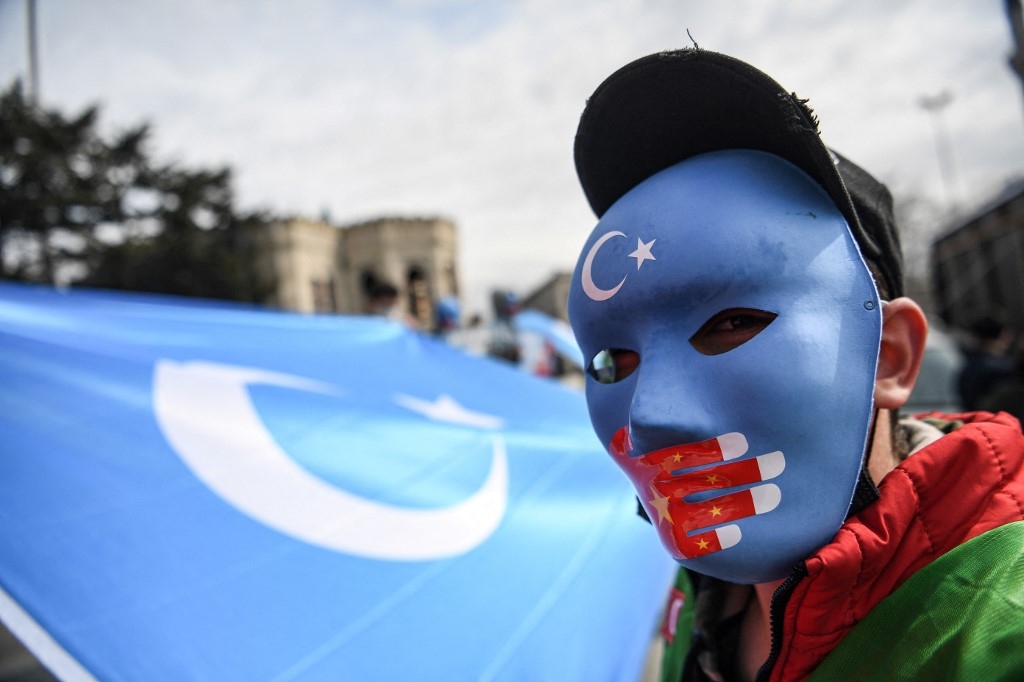
Uighurs and other predominantly Muslim ethnic minorities in China's Xinjiang region face systematic and state-organised "mass internment and torture amounting to crimes against humanity", Amnesty International has said.
In a 160-page report published on Thursday, the rights group called on the UN to investigate the abuses, and said Beijing had subjected Muslims to mass detention in violation of international law.
More than 50 former camp detainees shared new testimony with Amnesty, providing a detailed inside account of the conditions in internment camps sanctioned by Chinese authorities since 2017.
Testimonies from former detainees included the use of "tiger chairs" - steel chairs with leg irons and handcuffs that restrain the body in painful positions - during police interrogations.
Two former detainees told the rights group they had been forced to wear heavy shackles - in one case for an entire year. Others described being shocked with electric batons and sprayed with pepper spray.
"Chinese authorities have created a dystopian hellscape on a staggering scale," said Agnes Callamard, Amnesty International's secretary-general and a former UN investigator on human rights.
"It should shock the conscience of humanity that massive numbers of people have been subjected to brainwashing, torture and other degrading treatment in internment camps, while millions more live in fear amid a vast surveillance apparatus."
The report comes less than two months after Human Rights Watch said it believed China was responsible for crimes against humanity in Xinjiang.
Some Western countries have accused China of persuing a genocide against the Uighurs and other minorities in Xinjiang, with the US state department having previously declared it as such, and the parliaments of the UK, Canada, and the Netherlands having passed resolutions making the same declaration.
Still, Jonathan Loeb, author of the Amnesty report, said at press conference on Thursday that the rights group's research "did not reveal that all the evidence of the crime of genocide had occurred" but that it had so far "only scratched the surface".
Who are the Uighurs and why is China targeting them?
+ Show - HideAccording to multiple reports, more than one million Uighurs, a Muslim-majority Turkic people, are currently being held in internment camps across Xinjiang in western China (or occupied East Turkestan as many Uighurs refer to the region).
Human Rights Watch said in September 2018 that up to 13 million Muslims in Xinjiang have been subjected to “forced political indoctrination, collective punishment, restrictions on movement and communications, heightened religious restrictions, and mass surveillance in violation of international human rights law”.
The Uighurs have have been particularly targeted since Communist party leader Chen Quanguo became Xinjiang’s party secretary in 2016. Under his leadership, a massive surveillance infrastructure was unrolled across the region designed to monitor and control the Muslim community.
Uighurs and ethnic Kazakhs have been routinely rounded up for practising their Islamic faith, including praying, observing Halal, or wearing clothes synonymous with being Muslim.
The Chinese government has even labelled Islam an “ideological illness” and has destroyed some mosques in the region. In the camps, detainees are forced to learn Chinese Mandarin, praise the ruling Chinese Communist Party and face recurrent psychological and physical abuse.
Uighur activists say that entire families have disappeared into the camps, or have been executed.
China has repeatedly denied allegations that it is persecuting the minority group, instead describing the camps as “vocational training centres” designed to counter religious extremism.
It also calls concerns raised by Uighur community members, human rights groups and others “unjustified” and an “interference in China’s internal affairs”.
'Outside scope of Chinese justice system'
Rights groups have also accused China of conducting forced sterilisations and abortions on Uighur women and using population transfer to reduce the population density.
China routinely denies accusations of human rights abuses in Xinjiang and says its camps are voluntary vocational and de-radicalisation programmes for combating terrorism in the region.
In its report, Amnesty said counterterrorism could not properly justify the scale of the mass detention there, and that the Chinese government's actions showed a "clear intent to target parts of Xinjiang's population collectively on the basis of religion and ethnicity and to use severe violence and intimidation to root out Islamic religious beliefs and Turkic Muslim ethno-cultural practices".
Amnesty also said camps in Xinjiang appeared to be "operating outside the scope of the Chinese criminal justice system or other known domestic law", and that there was evidence detainees had been transferred from camps to prisons.
While many of its findings have been previously reported, Amnesty's study is likely to add to further pressure on Beijing over its actions and policies in Xinjiang.
In March, the EU, US, UK and Canada imposed sanctions on Chinese officials over the alleged abuses. China responded by imposing retaliatory sanctions on lawmakers, researchers and institutions.
Middle East Eye delivers independent and unrivalled coverage and analysis of the Middle East, North Africa and beyond. To learn more about republishing this content and the associated fees, please fill out this form. More about MEE can be found here.


